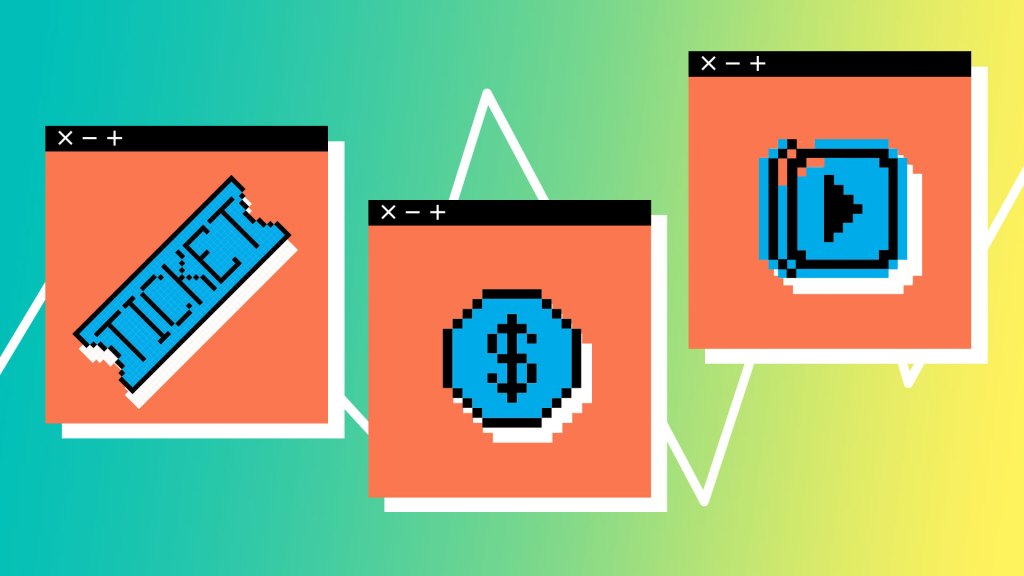VIP Subscriber
By Gavin Bridge
Senior Media Analyst
NFTs are in a transitional stage.
Big media and entertainment companies have been signaling their intent to enter the NFT market for over a year now, with this incursion set to change the nature of how most consumers perceive NFTs.
Currently, the common thought among many is that NFTs are expensive images or, even worse, a scam or pyramid scheme, as exemplified by comments recently made by Bill Gates.
!function(){“use strict”;window.addEventListener(“message”,(function(e){if(void 0!==e.data[“datawrapper-height”]){var t=document.querySelectorAll(“iframe”);for(var a in e.data[“datawrapper-height”])for(var r=0;r<t.length;r++){if(t[r].contentWindow===e.source)t[r].style.height=e.data["datawrapper-height"][a]+"px"}}}))}();
This perception has not been helped by the impact of what’s being called “crypto winter”: The recent drops in the value of cryptocurrencies has seen corresponding declines in the value of NFT sales, which makes sense considering many markets were pegged to that value. One exception to the rule is trading-card giant Panini, which only allows for fiat currency payments and has not seen a decline in USD sales, per CryptoSlam.
While it is accurate to say that the collectibles NFT market is slowing, when looking at total volume of transactions, the decline is muted. June saw an 11% drop in total transactions from May, a significantly lower fall than the 72% seen in sales value.
All of this will have an impact on how the public sees NFTs, opening up the possibilities that the technology allows. As VIP+’s “Web3 Demystified” special report notes, an NFT conceptually is a blockchain ledger detailing ownership. How this is utilized depends on the individual, and it is now that non-image NFTs are rising to prominence.
Event ticketing is a great example of NFTs being used for functional purposes while adding utility to an existing concept. As is the case with almost every facet of NFTs, the existing ticketing industry — led by Live Nation Entertainment’s Ticketmaster — is looking to extend into the new space, while NFT upstarts like YellowHeart, seeking to disrupt old markets, build from the ground up.
!function(){“use strict”;window.addEventListener(“message”,(function(e){if(void 0!==e.data[“datawrapper-height”]){var t=document.querySelectorAll(“iframe”);for(var a in e.data[“datawrapper-height”])for(var r=0;r<t.length;r++){if(t[r].contentWindow===e.source)t[r].style.height=e.data["datawrapper-height"][a]+"px"}}}))}();
This concept of old versus new ticketers sees different approaches taken in the market. Ticketmaster and Live Nation are so far focused on after-event functionality, offering commemorative ticket stubs for attendees of sporting events, concerts and festivals. While some of the festival NFTs offered real-life opportunities, such as access to a VIP lounge at New York’s Governors Ball, none of these NFTs function as an actual ticket — i.e., allowing owners access to the actual event.
What YellowHeart offers is a completely different experience. The ticket is an NFT and a direct means of entry to concerts and events, as well as being a digital stub. The nature of what an NFT essentially is — a record of ownership stored on the blockchain — means NFT ticketing is able to cut out bad actors and eliminate counterfeit tickets for events, as there can only be one copy of an NFT.
Using NFTs for ticketing also means that scalpers, long a bane for eventgoers, will see their margins shrink on two levels. The first is the implementation of smart contract technology into tickets, meaning that a cut, likely around 10%, of any resell will go to the artist and/or venue. The second is the ability to limit resale amounts within the NFT ticket marketplace, cutting into scalpers’ margins.
NFT tickets also bring the promise of additional utility to owners and event holders. Live Nation president Michael Rapino noted in the company’s Q1 2022 earnings call that NFT ticket stubs can help create an ongoing relationship with the owner (as well as providing more upsell opportunities).
VIP+ reached out to several entertainment brands active in the NFT ticketing space who echoed the community sentiments. MGM Resorts International’s SVP of Digital Product & Design Excellence, Andrew Machado, told VIP+ that NFTs will help to provide engaging experiences to guests, both before and after events. Tao Group Hospitality VP of Marketing Justin Levy added that NFT tickets allow for the event experience to live past just the night of the event and hence unlock a new opportunity for brand awareness.
With blockchain technology making it clear who are the end users and event attendees, NFT ticketing also allows for additional ongoing utility, like perks and rewards for frequent visitors to venues or sports games. It provides an alternative format for customer reengagement via special offers or food and drink credits, which have previously only been sent via email. NFT tickets can also provide access to exclusive content from events, ensuring attendee engagement beyond the event.
In short, NFT ticketing promises to give actual utility and practicality to the technology. As the concept becomes more widespread, it will help to supplant the consumer idea of what an NFT is from expensive, potentially scamming, pieces of digital art to technology that can be applied positively to aspects of their lives. We are four years out from the World Cup being held in North America; expect events like that to feature this ticketing and help cement the new era of NFTs in public consciousness.
The Business of Entertainment



